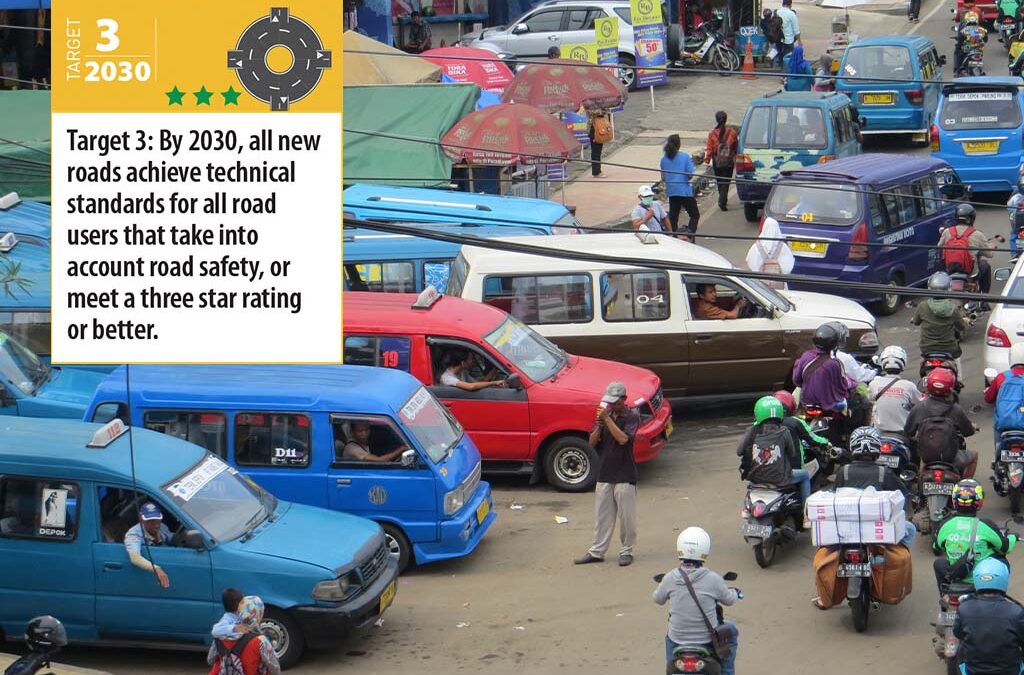The World Bank Global Road Safety Facility (GRSF) and International Road Assessment Programme (iRAP) have commenced an innovative project to evaluate countries’ progress in achieving UN Target 3: that by 2030, all new roads achieve technical standards for all road users that take into account road safety, or meet a 3-star rating or better.
Safe road infrastructure is a key focus of the Global Plan for the Decade of Action for Road Safety 2021-2030 which calls on all governments and partners to achieve the 12 UN Global Road Safety Performance Targets in their countries, of which Targets 3 and 4 relate to road infrastructure.
The multi-faceted two-year project will include a review of more than 10 completed priority road projects using existing iRAP assessment data and covering the full project lifecycle from planning, design, construction, operation and maintenance.
Star Rating and fatality estimates will be undertaken of the road designs and constructed roads using the Star Rating for Designs (SR4D) web tool to understand their safety performance against the international 3-star or better standard.
SR4D is a free tool and evidence-based programme of applications informed by the iRAP Methodology which enable the simple and objective measure, and improvement, of the level of road safety ‘built in’ to a road design for vehicle occupants, motorcyclists, pedestrians and cyclists, before the commencement of civil works. The tool was developed with the financial support of the GRSF.
Training and support will be provided to low- and middle-income country local research teams and suppliers to develop capacity in use of SR4D, how to perform iRAP assessments, and to identify areas for improvement.
A review of local design standards and specifications and a stakeholder survey will be implemented in consultation with local road authorities, consultants, government agencies, relevant MDBs and other partners to identify barriers in the planning and management of safer roads.
Before and after crash data, where available, will be collected and analysed.
The project will see the enhancement of the SR4D web tool including QA, certification functionality and user support.
To address knowledge gaps and support improved safety outcomes for all road users in low- and middle-income countries, knowledge guidance will be developed to inform improvements to UN Road Safety Collaboration resources and the Road Safety Toolkit, a free online repository of information on the causes and prevention of road crashes that cause death and injury.
Apart from evaluating progress in achieving Target 3, the project will identify factors that have been influential in achieving the target and barriers that consistently prevent designs from achieving the target, and make recommendations for future projects,
The 2-year project is supported by UK Aid, through the Global Road Safety Facility (GRSF) and implemented by iRAP.
According to iRAP’s Vaccines for Roads, achieving UN Targets 3 and 4 by 2030 stands to save 450,000 lives a year with an economic benefit of $8 of savings for every $1 invested.
To understand the human impact of road crashes, how safe the world’s roads are for different road user groups and by country, and the human and economic Business Case for Safer Roads, visit https://www.vaccinesforroads.org/irap-big-data-tool/
Image source: Shutterstock


















